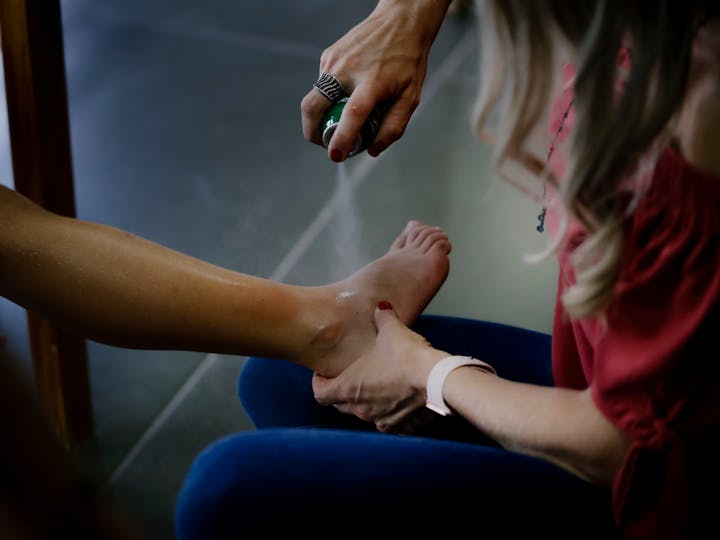Hurt in a Store? Key Things to Know About Retail Injury Claims

You walked into the store for a quick errand. A few minutes later, you’re on the floor—injured, confused, and unsure of what just happened. It’s frustrating, sometimes embarrassing. But if that fall wasn’t your fault, it might not just be “bad luck.” Retail spaces carry a duty to keep you safe while you shop. And when they don’t, you may have the right to do something about it.
The real challenge? Knowing what matters in a situation like this—what counts as a legal claim, what steps protect your case, and why talking to an attorney sooner than later could change everything.
Let’s walk through what you need to know.
When Is It More Than “Just an Accident”?
Not every injury in a store leads to a valid claim. That’s where things often get confusing.
For a retail injury to be considered legally actionable, there has to be negligence. That means the store either caused the dangerous condition or failed to address it in time. Think unmarked wet floors, poor lighting near stairs, broken handrails, loose shelving, or messy walkways.
These aren’t just minor issues—they can cause real harm. But proving that the store had time to fix the problem and didn’t is key. That’s where legal guidance can help from day one.
Why You Should Speak to a Lawyer Early—Not Later
When you get injured in a store, the clock starts ticking—but not in your favor. The store’s insurance team will act fast. Their goal? Limit the company’s liability. Not to help you heal or recover costs. That’s why having a lawyer early on is critical.
An experienced attorney knows how to protect your side of the story. They can gather key evidence, like surveillance footage or maintenance records, before it disappears. They also help you avoid mistakes, like signing documents too soon or saying the wrong thing during an insurance call.
Take cases involving Home Depot injury settlements as an example. There are both high-profile and average, ranging compensation cases. However, the people who successfully claimed compensation often had one thing in common: legal support that stepped in early. These legal teams showed how the store failed to address known risks—something hard to prove without help.
Without a lawyer, you risk missing deadlines, losing evidence, or accepting a settlement that barely covers your bills. Acting early gives you a stronger case—and better peace of mind.
What You Do Right After the Injury Really Matters
If you’re physically able, take clear photos of the area—before anything is moved. Capture what caused the injury and any warning signs (or lack of them). Also, take pictures of your injuries as soon as possible.
Always report the incident to store staff and ask for a written report. Get the names of employees you spoke to. And if anyone saw what happened, politely ask for their contact info. Those small steps go a long way.
Time fades memories. And stores often fix the hazard quickly after an accident—making your documentation even more valuable.
Don’t Brush Off That Doctor Visit
You might feel fine at first. Maybe a little sore. But some injuries don’t fully show up for hours—or even days. Delaying care is one of the biggest mistakes people make.
You need to see a doctor. Not just for your health, but to create a record. Medical reports prove you were hurt and when. If you wait too long, the store’s insurance team may argue your injury came from something else entirely.
Follow-up care matters too. If a doctor recommends physical therapy, don’t skip it. Insurance companies look at consistency when evaluating how serious your injury really is.
What Kinds of Compensation Might Be Possible?
Depending on your injury, several types of compensation could apply.
- Medical expenses (both current and future)
- Physical therapy or rehabilitation
- Lost income from missed work
- Pain and emotional distress
- Long-term care or disability, if applicable
Many people underestimate their needs. A good attorney will look beyond your current bills and help forecast what you might face down the line. You deserve a settlement that covers the full impact, not just the immediate aftermath.
There’s a Time Limit—And It’s Not Long
Most states have a legal deadline, called a statute of limitations, for injury claims. Often it’s two years—but that varies. And some exceptions can shorten or extend the window.
Here’s the issue: Evidence doesn’t wait around. Security footage might be overwritten. Witnesses may be hard to reach. And paperwork needs to be filed correctly, or you could lose your right to compensation entirely.
When lawyers get involved early, they make sure everything is preserved, filed, and handled properly.
Final Thoughts
It’s easy to feel unsure after getting hurt in a public place. You might even blame yourself. But if your injury was caused by unsafe conditions, the store had a responsibility—and they didn’t meet it. The right legal support can clear the fog, give you options, and help you move forward with confidence. And it starts with knowing your rights—and acting before time runs out.
